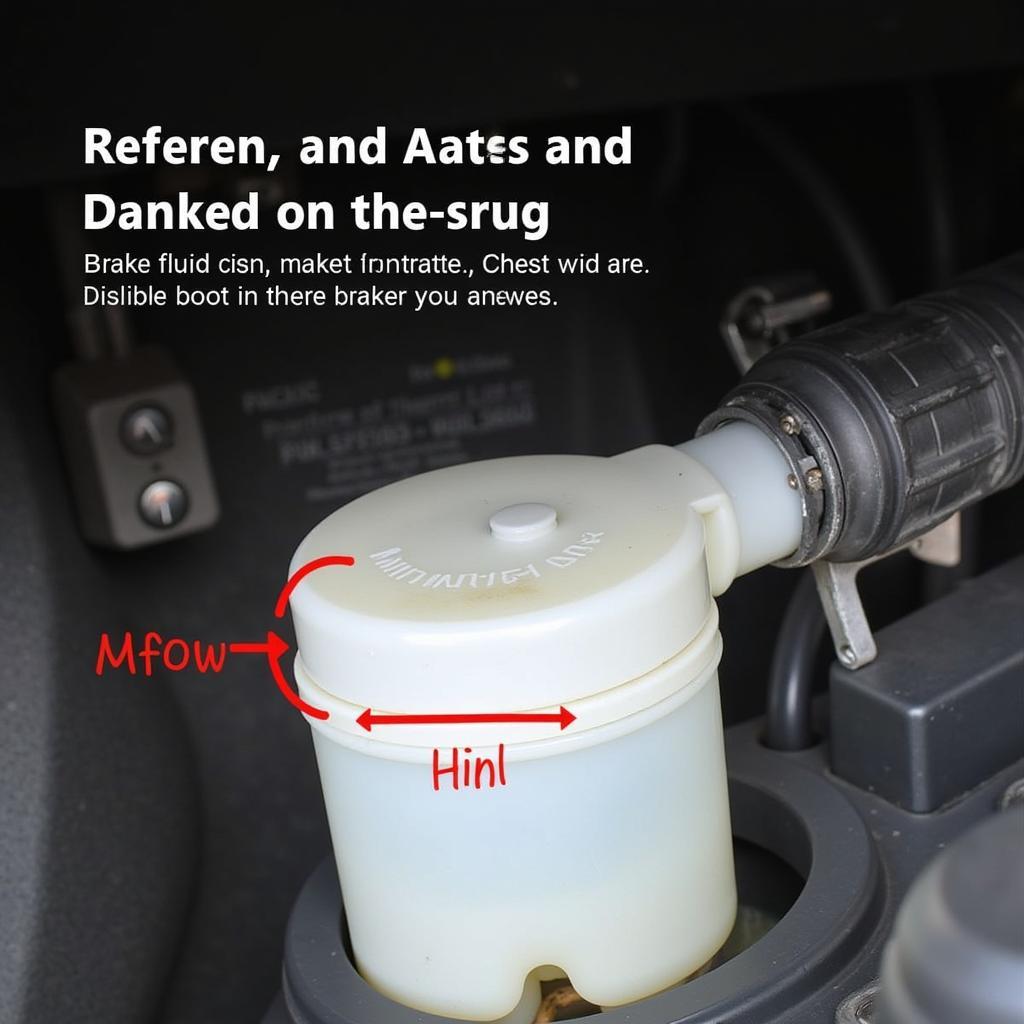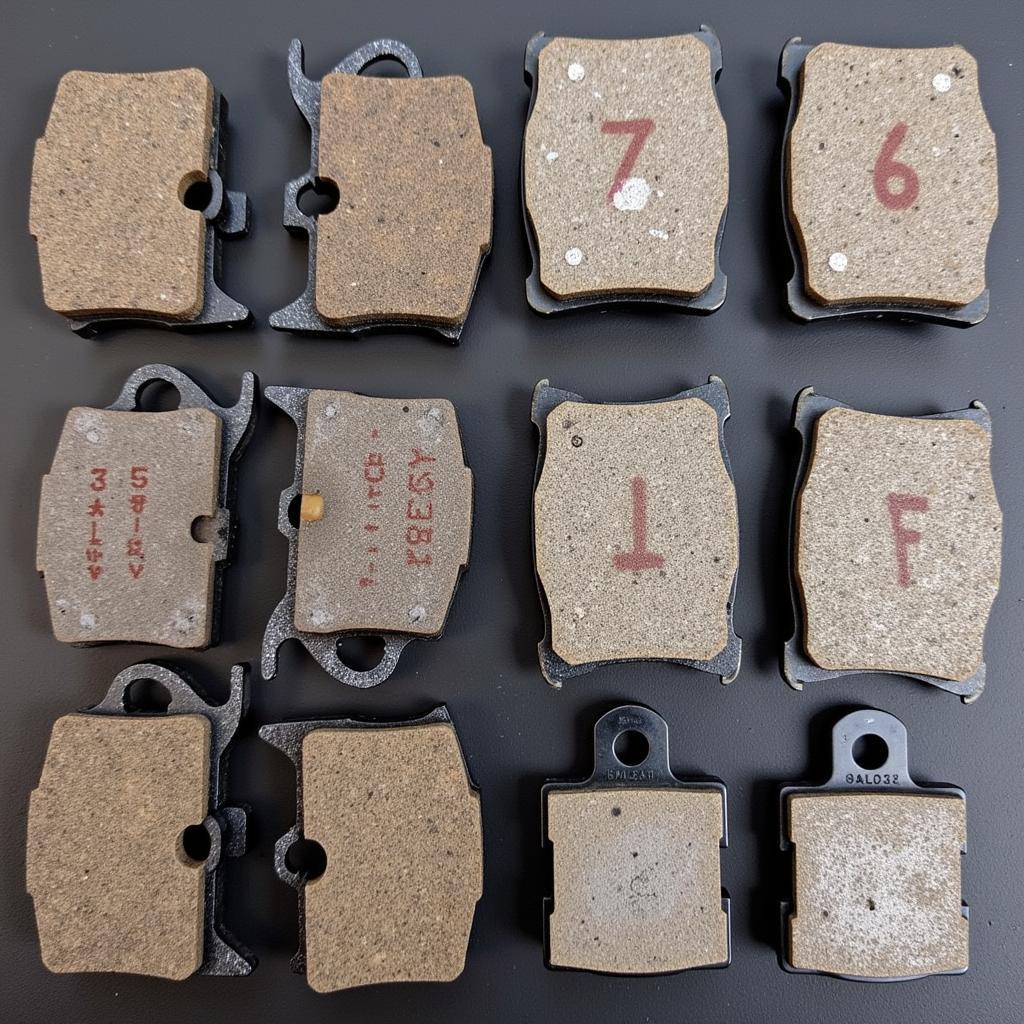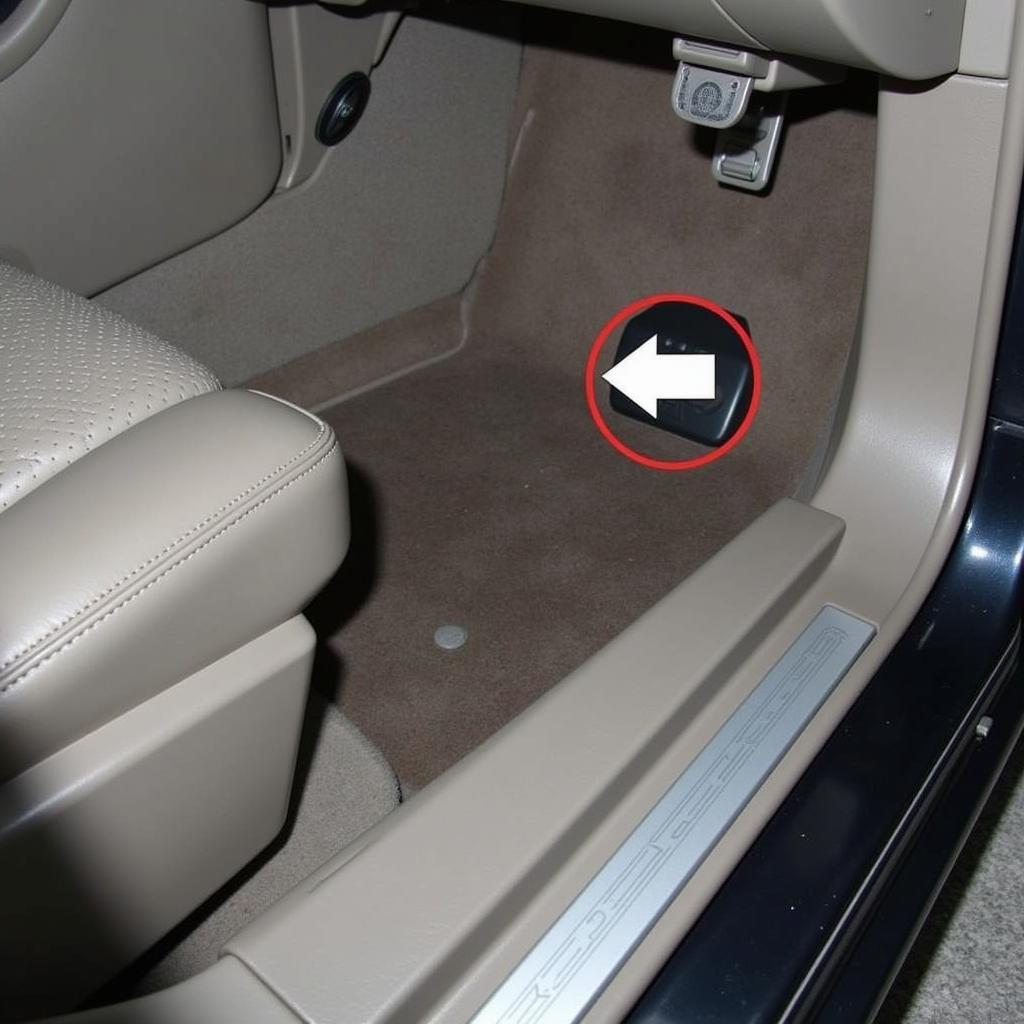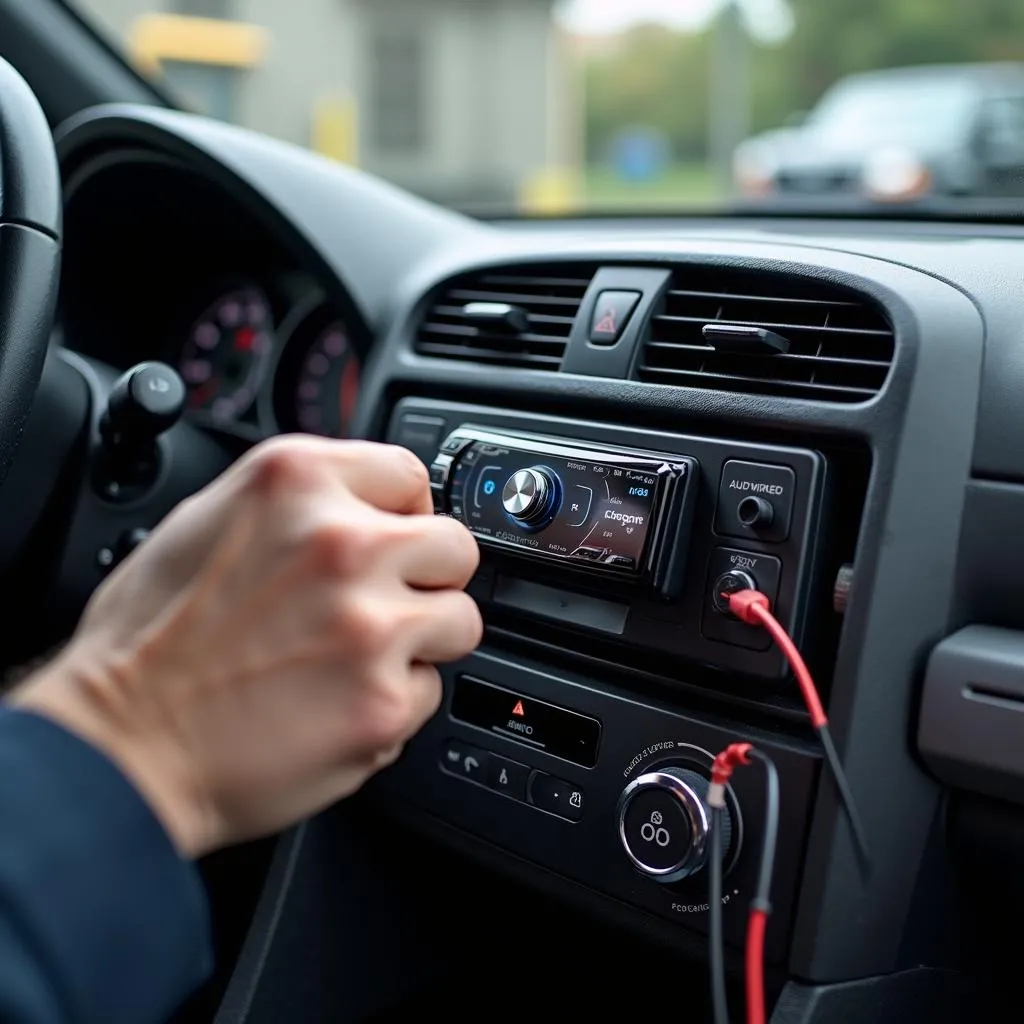If your 2002 Volkswagen Passat’s brake warning light is on, it’s crucial not to ignore it. This light is your car’s way of signaling a potential problem with your braking system, an issue that directly impacts your safety and that of your passengers. While the issue could be minor, like worn brake pads, it could also indicate a more serious problem requiring immediate attention. This comprehensive guide will walk you through the common causes of a 2002 VW Passat brake warning light and provide potential solutions to get you back on the road safely.
Understanding Your Passat’s Brake Warning System
Your 2002 VW Passat utilizes a sophisticated system of sensors and lights to keep you informed about the health of your brakes. The brake warning light, often symbolized by an exclamation mark within a circle, is designed to illuminate when the system detects an anomaly. This could be due to:
- Low Brake Fluid: The most common culprit, low brake fluid, directly impacts your car’s ability to stop effectively.
- Worn Brake Pads: Brake pads have wear indicators that trigger the warning light when they reach a certain level of thinness.
- Faulty Brake Light Switch: A malfunctioning brake light switch may not only affect your brake lights but can also illuminate the warning light on your dashboard.
- ABS Issue: Problems within the Anti-lock Braking System (ABS), such as a faulty sensor, can also be the source of the warning light.
- Other Brake System Malfunctions: Less common but potentially serious causes include issues with the master cylinder, brake lines, or other components.
 Brake Fluid Reservoir
Brake Fluid Reservoir
Troubleshooting the Brake Warning Light
Before heading to a mechanic, there are a few checks you can perform yourself:
-
Check Your Brake Fluid Level:
- Safely park your Passat on a level surface and engage the parking brake.
- Locate the brake fluid reservoir under the hood. Refer to your owner’s manual if needed.
- The reservoir will have “MIN” and “MAX” markings. Ensure the fluid level falls between these lines.
-
Inspect Your Brake Pads:
- While checking the brake fluid, visually inspect your brake pads through the spaces in your wheels.
- Look for significant wear. If the pads appear dangerously thin, it’s time for a replacement.
 Worn Brake Pads Comparison
Worn Brake Pads Comparison
When to Seek Professional Help
If you’ve checked your brake fluid and pads and the light persists, or if you notice any of the following, it’s essential to consult a qualified mechanic:
- Spongy or soft brake pedal feel
- Grinding or squealing noises when braking
- Brake pedal going all the way to the floor
- Vehicle pulling to one side while braking
- Burning smell coming from the brakes
Remote Diagnostics and Software Solutions
In some cases, the brake warning light in your 2002 VW Passat might be triggered by a software glitch or an issue with the car’s electronic control unit (ECU). Here’s where remote diagnostics and programming come in:
- Remote Diagnostics: Some specialized services can remotely connect to your car’s computer system via the OBD-II port. This allows a technician to read error codes and diagnose the problem, potentially identifying software-related issues.
- Software Updates and Reprogramming: If the problem stems from a software bug or an outdated module, a remote technician might be able to install software updates or reprogram the ECU remotely to resolve the issue.
 OBD-II Port in Passat
OBD-II Port in Passat
“It’s crucial to remember that not all brake warning light issues can be solved remotely,” says John Smith, a certified automotive electrician with over 15 years of experience. “If the problem is mechanical, like worn brake components, physical repair will be necessary.”
Don’t Ignore the Warning
A glowing brake warning light on your 2002 Volkswagen Passat is a clear sign that attention is required. While a simple top-up of brake fluid might be the solution, ignoring the light can lead to more significant problems and costly repairs down the line. Remember, a properly functioning brake system is paramount for your safety and the safety of others on the road.

